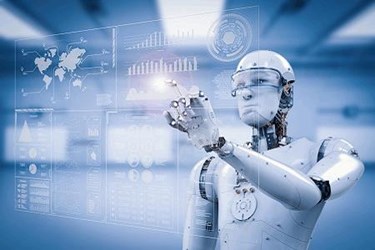Creating More Jobs With AI

By James Ramey, CEO, DeviceBits
Today, artificial intelligence, or AI, has contributed greatly to how business is conducted. However, with the push of technology and AI to provide advanced services to consumers, many fear AI will take over the majority of jobs and become a negative with consumers. But when looking at the overall image of AI and its key accomplishments, specifically in the customer care department, AI can possibly create more jobs for Americans. How can the pros of AI outweigh the reluctance of fully accepting AI?
Use of AI in customer service has helped increase digital foot traffic. Chatbots, a prime example, can automate customer care interactions and provide simple service for quick customer resolutions. This carves an open path for customers with more specific inquiries the bot cannot answer, directing them to a live agent. Companies can also use their creative designs in creating bots of any appearance for a friendly user experience. AI can be used as the mastermind behind countless self-service materials, creating an easy self-help journey for consumers to access.
A Harvard Business Review article cites several studies on how AI and its position in automation and jobs sit with the participants of the studies. Some said only 4 percent of jobs would be lost to automation; others believed 47 percent would fall under automation by 2033. Truth is the article surmises the participants who believe jobs will become scarce due to AI are allowing themselves to be too pessimistic with AI and its achievements.
As mentioned, AI has been in the lead in the customer care industry, handling computer-to-computer services. There is evidence of a slight takeover that isn’t as serious as it sounds. There is the possibility of AI taking place of a few “tier-one” customer support jobs. These jobs involve front-of-the-line customer care agents handing the initial customer service contact, usually the 1-800 number called that ends up having the customer talking to an agent offshore. AI technology today is capable of providing supportive self-help materials for customers and automated chatbots interactions for quick service. If AI takes over tier-one positions, this gives large companies the chance to invest time and money into their U.S.-based “tier-two” positions.
While customers are successfully using self-service materials to resolve simple troubleshooting, customers who need more in-depth answers to their sophisticated questions will be assisted by the tier-two agents. AI technology is also capable of supporting customer service agents through their live calls. These agents can use the AI technology as “assistants” during their customer interactions when they need further content in providing the correct answer to customers.
Another increasing demand to go along with the movement of AI is the demand for consumers to become tech-savvy. The workforce is adopting these fast-changing technologies and will cater to workers who have experience in the AI field and other technologies.
Though tier-one jobs seem to be now the responsibility of AI chatbots and other interactive support, more jobs will open up across different industries that adopt AI technologies and need skilled people who understand the process of machine learning material and processes.
About The Author
James Ramey is CEO of DeviceBits, a software company that services clients through a predictive and personalized understanding of interactive tutorials, adaptive FAQs, Interactive Guides, and Videos designed to for self-serving consumers.
